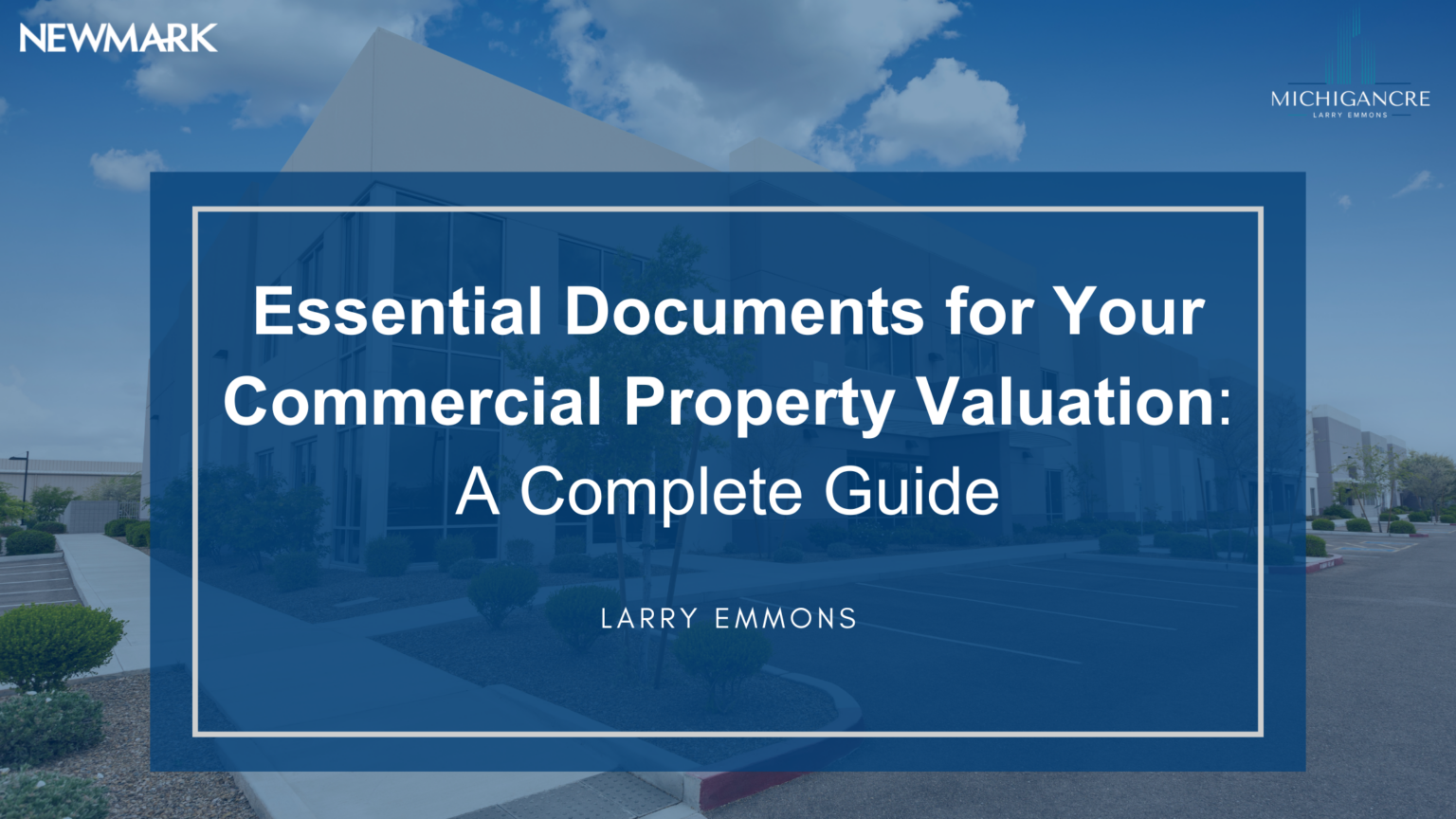Understanding Commercial Property Valuation is the crucial first step in determining your property’s market worth. Whether you’re planning to sell, refinance, or simply assess your investment’s current value, having the right documentation is essential for an accurate assessment. As an experienced commercial real estate broker, I’ve seen how proper preparation can significantly impact valuation outcomes and ultimately affect your bottom line. This blog will walk you through all the essential documents you need to gather before meeting with your broker for a professional opinion of value.
Critical Property Documentation
Before meeting with your broker, gather these fundamental ownership documents:
- Property deed and title documents that establish clear ownership
- Recent appraisal reports that provide historical valuation context
- Current property tax assessments and payment history
- Detailed floor plans and property surveys with accurate square footage
- Comprehensive documentation of property improvements, including permits, contractor invoices, and photographic evidence
Financial Records That Matter On Commercial Property Valuation
Your property’s financial performance plays a crucial role in determining its value. Prepare these essential financial documents:
- Three years of detailed operating statements showing income and expenses
- Current rent roll with lease expiration dates and renewal terms
- Twelve months of utility costs and consumption data
- Active insurance policies and premium statements
- Detailed maintenance logs and repair histories
- If applicable, HOA documentation and payment records
- Current mortgage statements and terms
Historical Property Information
Understanding your property’s history helps brokers develop accurate valuations. Include these historical records:
- Original purchase documentation and price
- Comprehensive sales history
- Past insurance claims and resolutions
- Documentation of existing easements or restrictions
- If applicable, historical rental income data
The Valuation Process
With these documents in hand, your broker can:
- Analyze comparable property sales in your market
- Develop a detailed value range analysis
- Create a strategic marketing timeline
- Recommend optimal pricing strategies
- Project potential time-to-sale scenarios
Why These Documents Matter
Complete documentation enables your broker to:
- Identify your property’s unique selling points
- Address potential buyer concerns proactively
- Support your asking price with concrete data
- Streamline the due diligence process
- Maximize your property’s market value
Take Action Today
Don’t leave money on the table when selling your commercial property. Contact a qualified commercial real estate broker today to begin your property valuation process. The more thorough your documentation, the more accurate and beneficial your broker’s opinion of value will be.
Ready to discover your property’s true market value? Contact Larry Emmons today for a comprehensive broker’s opinion of your property. Call 248-705-9115 or email Larry.Emmons@nmrk.com to schedule your consultation.
